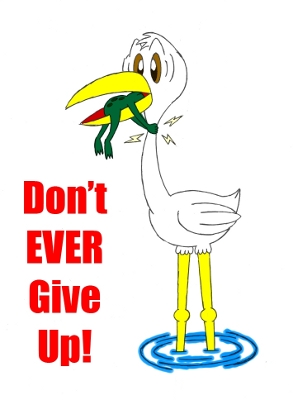I've been re-watching the Justice League animated series on Netflix lately. (The one from 2001-2004, part of the "DC Animated Universe" (DCAU) or "Timmverse".) It's great stuff; though suitable for kids, it manages to touch on some deep ideas, in the best tradition of the superhero mythos.
The second season episode "Only a Dream" features the DCAU version of John Dee, a.k.a. Doctor Destiny. Fans of Neil Gaiman's work on Sandman (and if you're not such a fan, well, I'm sorry for you) may remember Dee as the supervillain who stole Morpheus's ruby and used its power to create horrors; in the DCAU, Dee is instead a petty crook, a convict who volunteers for ESP experiments that end up transforming him and giving him the power to control the dreams of others. He traps most of the Justice League heroes in their sleep, leaving Batman to confront Dee alone.
As Batman pursues Dee, Dee taunts him:
Dr. Destiny: You know, I could let you go. You're a distraction now, and it's the others I have the real problem with. We're like insects to them. They step on us, ruin our lives, and they don't even realize it! But you're different. You don't have any special powers.Batman: Oh, I have one, Johnny. I never give up.
Of course in the end Bats defeats Dee, and the other members of the League are freed from their nightmares.
It strikes me that this is, in one sentence, the essence of heroism: "I never give up."
From the ancient Labors of Hercules to the latest Adventures of Superman, this is how the stories of heroes work: they are faced with obstacles, they may even fail a challenge. They might even quit for a while, or in the science fiction and fantasy genres they might even die for a while. (I'm looking at you, Superman and Mr. Spock and Captain Kirk and Gandalf and...) But while they might go slowly or be pushed back, they never stop pushing forward. If they did, we wouldn't have much of a story, right? If Hercules said, "This Hydra is just too hard to fight, I'm going home" -- not a good story. Or if Frodo and Sam got to the border of Mordor, took a look around, and said "Nope, can't be done", we'd have a much shorter tale.
And in real life, if George Washington had said "These British soldiers are too hard to fight," if Martin Luther King or Malcolm X had said "Racism is too big a problem, I give up," if Neil Armstrong or Sally Ride had said "Space is scary and all this training is too hard," then we wouldn't be talking about any of them today.
Now most of us, of course, will never face challenges quite that dramatic. But we will have challenges. In our jobs or at school, in our relationships, in our personal lives, there will be difficulties. And part of the reason that we value the big dramatic stories is because they give us models of how to handle these real-life everyday challenges.
Here in the dojo, I can't give you super-strength, or heat vision, or teach you how to fly. But one thing we do work on, is how to never give up. As my friend Kyoshi Sandy Sattin once said, "All you have to do is a little bit more than you can do." Which doesn't really work if you take it literally and logically, but that's how you get to be a superhero.
And just like the reason that the stories of Batman or Hercules are important is that they teach us how to overcome challenges in our own lives, the reason that our training is important is not that we gain the ability to do more push-ups, or keep standing when someone hits us -- though those are useful. It's that we can take that "never give up" spirit that we learn in the dojo, and use it out in the everyday world.
